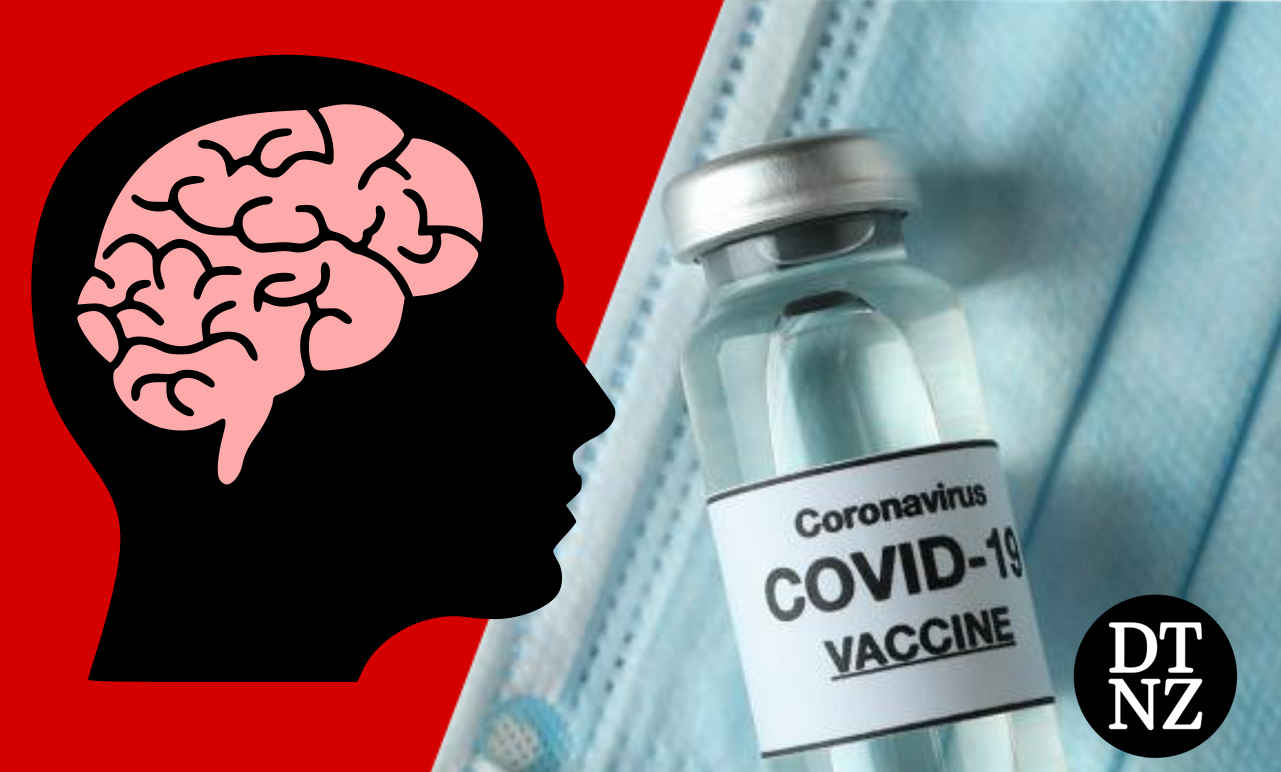A new peer-reviewed study published in the Journal of Neuroscience has found that the SARS-CoV-2 spike protein—produced in response to mRNA COVID-19 “vaccines”—can persist in the cerebral arteries of vaccinated individuals for up to 17 months.
The findings raise questions about the long-term biodistribution and safety of mRNA gene therapies, marketed to the public as “vaccines”, particularly in relation to adverse events such as hemorrhagic stroke.
Government, legacy media and Big Pharma aligned “experts” repeatedly told the public the spike protein would remain in injection site of the deltoid muscle and dissipate in hours.
A team of Japanese researchers analysed brain tissue samples from 19 individuals who suffered hemorrhagic strokes between 2023 and 2024. Using immunohistochemical techniques, they detected spike protein expression in the cerebral arteries of 43.8% of vaccinated patients. The protein was primarily located in the intima, the innermost layer of the blood vessels in the brain.
Importantly, in situ hybridisation—a technique used to identify specific genetic material—confirmed that the spike protein originated from both vaccine-derived and virus-derived mRNA. However, none of the samples tested positive for the SARS-CoV-2 nucleocapsid protein, indicating no active viral infection at the time of death.
The study also found that the presence of spike protein was associated with infiltration by immune cells, including CD4, CD8, and CD68-positive cells, suggesting an immune response in the affected vessels. Notably, all cases showing spike protein expression were female, a finding that reached statistical significance (P = 0.015), though further studies are needed to understand the implications of this gender-specific pattern.
The authors caution that while asymptomatic SARS-CoV-2 infection cannot be entirely ruled out, the results demonstrate the potential for long-term spike protein expression in the brain following mRNA vaccination. The findings underscore the need for further investigation into the biodistribution of lipid nanoparticle-based “vaccines” and their long-term safety profile.
The study concludes by calling for international replication and expanded research to validate these observations and support ongoing safety monitoring of mRNA vaccine technologies.

All together now “safe and effective”. Anyone voting for those supporting this reckless, fundamentally criminal behaviour, is a fool.
We know it’s poison, we know it’s deliberate.
No one has ever regretted not taking it
And we the people are still allowing their governments get away with democide.
“questioned again …”
Seriously …. “Questioning?” “Again?”
If one took the trouble to understand and review the literature one might realise what preposterous nonsense it is to assert any benefit from unpredictable, non-generalisable modRNA/LNP injections, other than perhaps a Darwin Award, plasmid induced disease, SV40 consequences, and apoptosis suppression.
Fingers crossed that those responsible for promoting the false safety of the mRNA jabs and those responsible for covering up the damage are brought to justice. I understand that Health NZ hasn’t even released the annual cancer statistics since 2020. The sheeple/people of NZ have been duped!
Why does the health system keep lying to us? Why do we pay taxes to our health system if they can’t do their jobs properly? Can someone please make some policy where the entire health system is completely privatised with zero-funding from our precious taxes.
At least someone’s trying to figure out why people are dropping like flies.
The pattern of behaviour is interesting: More studies and more questions, but no conclusion and action for prosecution. When our society does not want to deal with something and come to a conclusion it goes into an infinite loop of research.
I am reminded, although a different subject, but a similar behavioural pattern of continual research whilst the truth is never accepted: Special abilities such as ESP, remote viewing and so on. Research has gone on since the 1950’s that shows it is real. Meta studies have been done that show it is 10^15 to 1 real; i.e. 1,000,000,000,000,000 to 1 real. However, it is never accepted by scientists and they just do more research.
ESP is 10^15 to 1 real (99.9999999999999 percent) and is ignored, but the Higgs Boson is 6-sigma (99.997 percent) real and is accepted.
Shows how much people really believe the science when it suits their agenda and ignore the science when it does not.
Higgs-bosun needs huge dollars to prove he’s real and to prove he needs proof. DMCA has that sorted.
Ah yep, the ‘God particle’ scam.
Proving the existence of something that doesn’t exist can be/is very expensive.
Seldrake and scopaesthesia … perfect example.
Science is reasonably suited and equipped to investigate novel avenues of perception. The problem is that the philosophy and methodologies of science are infected and perverted by ‘scientivism’, policy-based evidence and the subversive propagation of profoundly compromised “literature” that explicitly supports pall view and erases dissent. The climatism and covid charades are perfect exemplars.
We are standing at the edge of a civilisational precipice of irretrievable decline into dull witted tyranny, while daily the choices become starker and fewer. Science, like law, ethics, morality, freedom, prosperity and education are merely casualties of ever escalating incoherence.
Not to worry folks, a certain epidemiologist will no doubt publish yet another whitewash article praising New Zealand’s response to the pandemic and how the clot shots saved thousands of lives.
5 nurse’s develope brain tumors.
https://www.nbcnews.com/news/amp/rcna199798
This would explain why some people are seriously losing it.
So not ‘safe and effective’ then.
I hate to say I told you so, but…